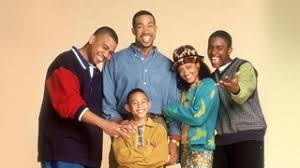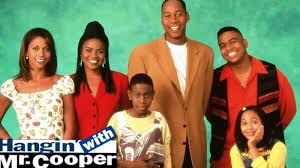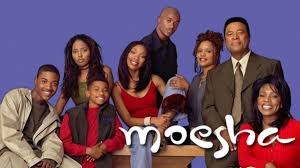While the early 1990s offered iconic hood films such as Boyz n the Hood (1991) and Menace II Society (1993), love jones (1997) offered something rarely seen in mainstream film—black love. The film is not a comedy. Not infused with hip hop. Love is examined, revered, and resented—but it is not minimalized. Furthermore, it offers unapologetic black sexuality shown with beauty and whit.

Roger Ebert’s opening to his film review highlights the unfortunate rarity of a film showcasing educated, middle class blacks. He explains, the film is “a love story set in the world of Chicago’s middle-class black artists and professionals–which is to say, it shows a world more unfamiliar to moviegoers than the far side of the moon.”[i] Although American television watchers received a glimpse of the black middle class with The Cosby Show (1984-1992), it was a comedy.
Furthermore, Cosby could offer the loving image of the Huxtable marriage, but the limits of the medium of television and family sitcom model prevent it from exploring black sexuality. There are limits to a love story that cannot show sex. Sex is a natural part of love. The film offers tasteful love scenes. It presents images of black sexuality that not only appear normal—but beautiful.

While most hood films centered on stark realism and nihilism, love jones offered symbolism and romance. Writer and director Theodore Witcher did this purposefully. He wanted to give the feel of “a modern Chicago version of the Harlem Renaissance.”[ii] He even distributed books about Renaissance artists such as Romare Bearden to the cast and crew.[iii]
It’s not difficult to see the influence of romanticized visions of 1920s salons with writers and artists debating esoteric topics. But how else do you create a platform to simply discuss love? Throughout the film, characters talk about the meaning of love. It is how we are introduced to Tate’s character Darius as he sits around with his friends in the Sanctuary (a spoken word venue) debating the meaning of love; Darius paints a metaphor of hope and possibility. Soon after he offers a sensual version of love in the spoken word piece “A Blues for Nina.” We also watch Darius and his only married friend Savon discuss the struggle to stay in love.
Ironically both Nia Long and Larenz Tate had major roles in the two iconic hood films mentioned earlier. Nia Long played Brandi, the love interest of the main character in Boyz n the Hood. Moreover, Tate played the infamous killer O-Dog in Menace II Society. Tate’s performance was so convincing that Witcher had to meet Tate in person to see the difference between the gangsta character and the actor.
And love jones continues to have an impact. Tate explains, “‘I get stopped at the airport by young folks telling me how much they love the movie and the actors and the music…It’s a one-of-a-kind film. And it’s still relevant. It’s about falling in love, and we’ve all done that…It’s not about people getting killed, just about people. Love is a universal story, Black or White.”[iv] —Ebony Gibson
[i] Ebert, Roger. “Love Jones.” Rogerebert.com. March 14 1997.
[ii] Ebert
[iii] Poulson-Bryant, Scott. “Jonesing for Love Jones.” Ebony (October 2010): 100.
[iv] Poulson-Bryant, page 99.






